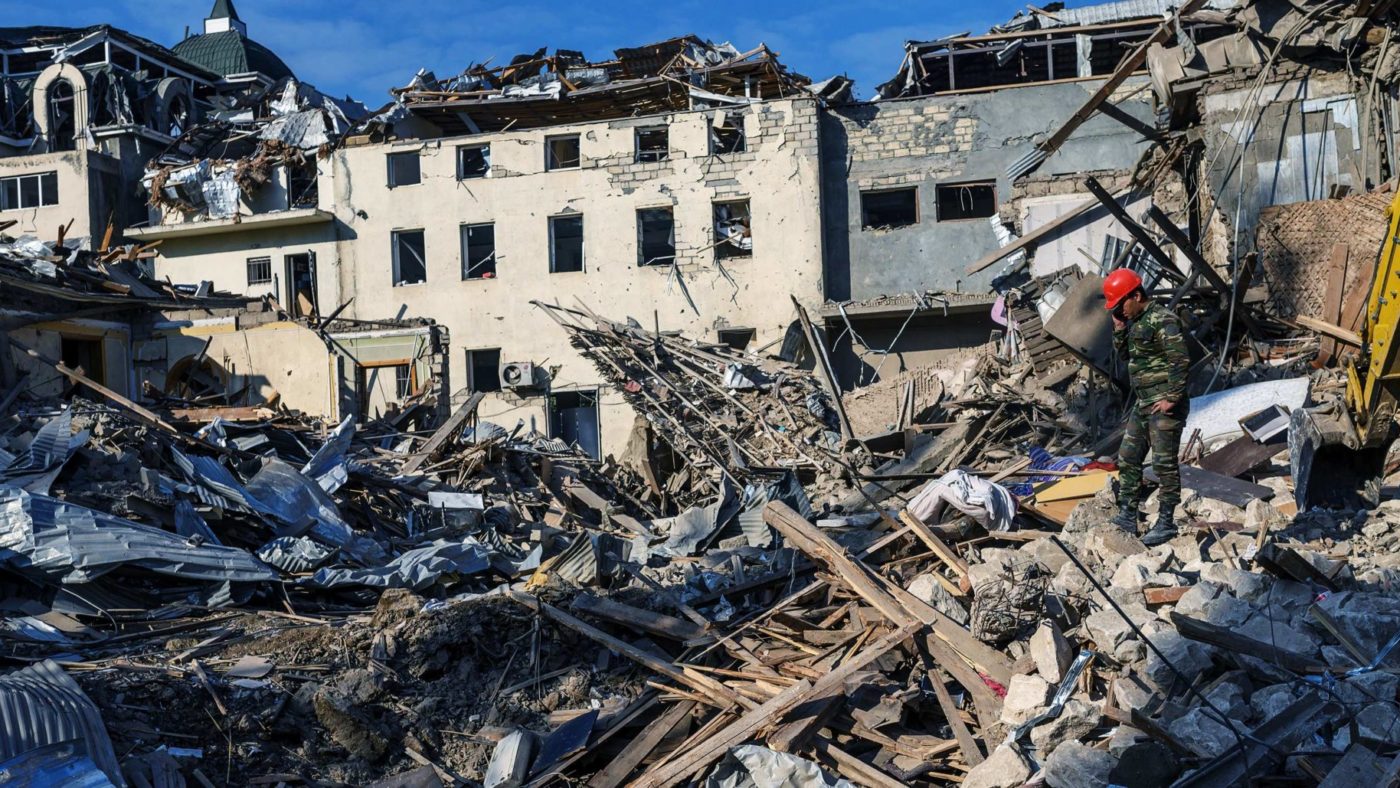It is a long time now since Britain was described as “having lost an empire but not yet found a role”. For a while we solved this issue with our membership of the European Union, but with Brussels’ insatiable desire for centralisation, federalisation, and bureaucratisation, it was always an unhappy place for Britain to sit.
Now that we have left the EU, a new, more lasting role can be found. The Government has outlined a vision of Global Britain in which we use British assets “more cohesively and efficiently to maintain our global standing”.
This means “reinvesting in our relationships, championing the rules-based international order and demonstrating that the UK is open, outward-looking and confident on the world stage”.
The conflict in Nagorno-Karabakh provides an opportunity for the UK to demonstrate this new-found confidence outside of the EU. The UK has good relations with both Yerevan and Baku and a dedicated aid budget, which could be effectively used to promote peace and diplomacy.
There is nothing to be gained from continuing fighting. Nagorno-Karabakh, or the Republic of Artsakh, is 95% Armenian, and no amount of fighting is going to alter its de facto status as Armenian territory. To Baku, this territory belongs to Azerbaijan and, indeed, it is internationally recognised as such. However, this land was only transferred to Azerbaijan in an essentially meaningless gesture after the Soviet Union had subsumed both Azerbaijan and Armenia into the expanding communist state.
Azerbaijan is backed by the increasingly belligerent Turkey, whose officials are adopting increasingly aggressive rhetoric against Armenia. After clashes in July, the Turkish fefence minister warned that Armenia would be “buried under their own plot, drown in it, and will absolutely pay for what they did”.
For too long western European powers have ignored instability on Europe’s fringe. We were late intervening in the conflicts in the Balkans in the 1990s, and have been impotent on Russia’s annexation of Crimea and covert invasion of eastern Ukraine.
Now the UK has left the EU, we can take a more active, and more confident foreign policy, demonstrating how nimble nations can be when not lumbered by big, supranational projects. This means taking a more outwardly pro-Armenian policy, while still engaging sensibly and fairly to promote peace. It means being clear that Turkey’s bullying of Armenia has gone on long enough, becoming more vocal about the Armenian genocide and being clear that Azerbaijan cannot continue to threaten Nagorno-Karabakh.
It also means using aid to promote positive developments, such as compensation for the hundreds of thousands of Azeris and Armenians that have been displaced during the decades of violence. It could also entail providing neutral venues and mediators to help with negotiations.
A particular problem in the region relates to the safety of farmers. A report by International Crisis Group found that “the abundance of unmarked minefields and restrictions on access to land prevented border residents from fully exploiting opportunities for farming, which is often their only source of income”.
The UK could use its resources and expertise to invest in a solution to this problem. While this would not end the conflict, it would ameliorate some of its worst effects. It would also represent a genuinely good use of the aid budget, which for so long has been squandered on projects which don’t advance Britain’s interests.
Worryingly, the media is currently awash with reports that Russia could play a role in mediating the current conflict. The UK, along with other Western powers, cannot stand bank and allow Moscow to shape the negotiations and relations between Azerbaijan and Armenia. This is our chance to now reassert ourselves in geopolitics and help the peoples of the south Caucasus shape a better future.
Click here to subscribe to our daily briefing – the best pieces from CapX and across the web.
CapX depends on the generosity of its readers. If you value what we do, please consider making a donation.


